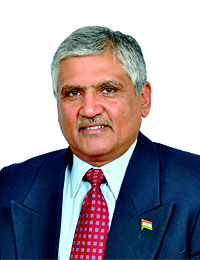Publisher’s Note
 Many organizations place too much emphasis on the lubrication technicians/engineers to get the job done, while providing little or no support. The prevalent attitude seems to be that sending a technician to a training class is all they needs to change the fortune of the lubrication department. A lube tech must understand safe and best practices for lubrication tasks, sampling techniques, how machines run, how they fail, the physics and chemistry behind lubrication engineering, technology, reliability engineering principles and technology, and the important role of lubrication and reliability in the frm’s economics.
Many organizations place too much emphasis on the lubrication technicians/engineers to get the job done, while providing little or no support. The prevalent attitude seems to be that sending a technician to a training class is all they needs to change the fortune of the lubrication department. A lube tech must understand safe and best practices for lubrication tasks, sampling techniques, how machines run, how they fail, the physics and chemistry behind lubrication engineering, technology, reliability engineering principles and technology, and the important role of lubrication and reliability in the frm’s economics.
A good lube tech is a specialized professional who, when properly enabled can deliver a great deal of value to the operations of a frm.
The question is who should perform lubrication tasks - dedicated lubrication technicians (centralized lubrication) or general mechanics and/or operators (decentralized)?
If we choose to centralize the activity, we can focus education and training activities on few people. Decentralizing lubrication means that numerous people must be trained and educated upfront and ongoing. This is because of turnover, which signifcantly increases the costs for training programs and decreases their effectiveness. In some organizations, size and scale prohibit assigning dedicated lube techs without outsourcing or assigning the activity to regional techs. In midsize to larger facilities, it is usually feasible to dedicate lubrication activities to lubrication professionals.
Decentralizing is an important activity such as machinery lubrication often results in poor performance and little innovation. Consider where your largest opportunities to improve mechanical reliability reside.
Educating the work force is a key frst step in launching your lubrication program. The operators and mechanics that are directly responsible for lubrication must be suitably trained, and individuals that are indirectly involved in the lubrication program should also have at least a basic awareness of the program’s goals, primary benefts, and its procedural requirements.
A best practice is to create the role of Lubrication Technician. The Lubrication Technician should be an intelligent, experienced, conscientious, highly trained member of the maintenance work force.Once trained, have your Lubrication Technicians validate their knowledge by becoming certifed through a credible certifcation program.
We would like to thank our readers for the heartening response to our previous edition’s cover story – “Supercharging Oil Analysis with AI” and other articles. Our current issue’s cover story is on “Who should be your Lubrication Technician”. This will help our readers to discover the benefts of having a knowledgeable and well-trained lubrication technician as well as the qualities to look for when flling this key position.
We are glad to announce that Machinery Lubrication India is about to complete 7 years with the next issue. Keep your support, feedback and encouragement pouring-in.
As always, we look forward to your valuable suggestions and feedback. Warm regards,
Udey Dhir
